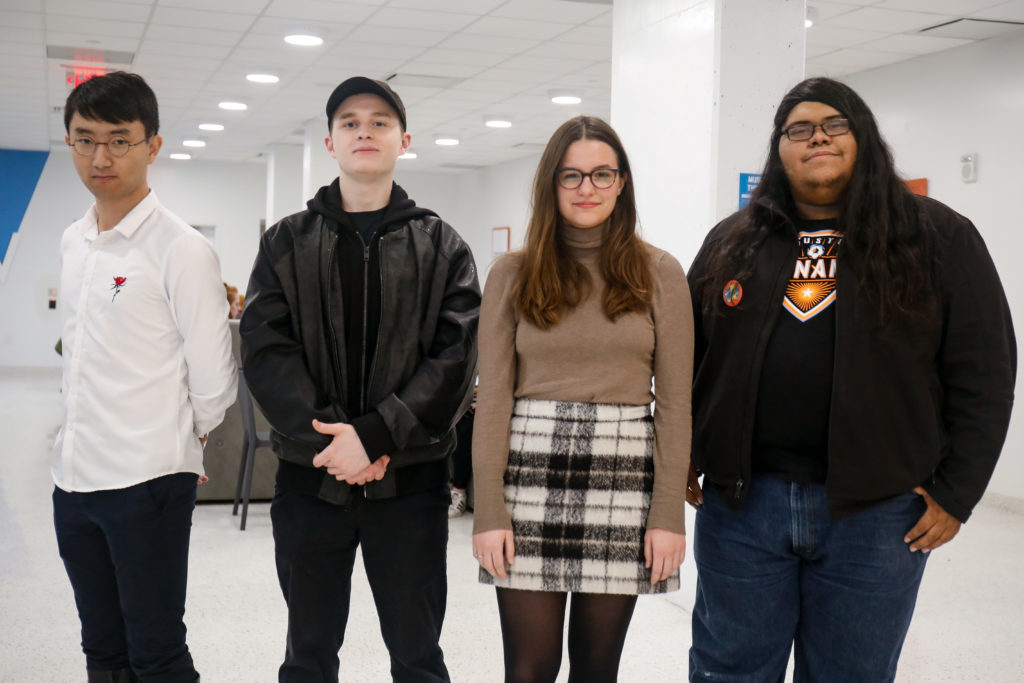A new student organization is looking to embrace the tradition of left-wing radicalism on college campuses.
The Internationalist Students’ Front, a roughly 20-member student group that launched on campus two weeks ago, aims to oppose nationalism across the world and contest popular narratives about U.S. foreign policy, members of the organization said. Group members said the organization will host teach-ins about the consequences of fascism and advocate internationalism, a political ideology similar to socialism that believes all people should unite to advance common interests.
Sophomore Sheng Zhang, a member of the organization, said the group was formed to help spread the idea that students should take a “cosmopolitan” approach to politics and international affairs instead of a nationalist view. He said a main tenet of internationalism is believing all people are equal.
“Internationalism means that we stand in solidarity with every single struggle against oppression in the world.”
“A nationalist approach is very common on campus, and people somehow regard foreign policy as a chess game about ‘how do we outrun Russia, and how do we outsmart China,’ but international relations is never a chess game, and we cannot play with people’s lives,” he said.
Zhang said the idea for the organization first came up last academic year when he wanted to host an event with another student organization featuring a Kurdish speaker – a Muslim minority with communities in countries like Iraq and Turkey. He said the organization, which he declined to name, refused to host the event because Kurdish oppression was not a main focus of the group.
Zhang then decided to start a different organization that would act as an advocate for oppressed populations across the globe.
“Internationalism means that we stand in solidarity with every single struggle against oppression in the world,” he said.
Zhang said the organization plans to host a memorial event either this month or next for those who died in the Nanjing Massacre, an early-20th century mass murder of about 300,000 Chinese citizens by Japanese troops during World War II. He said the organization also plans to circulate a petition and deliver a letter to Gelman Library demanding that two books – one of which is called “The Alleged ‘Nanking Massacre’: Japan’s Rebuttal to China’s Forged Claims” – written by members of the Japanese far-right denying the occurrence of the massacre be taken down or labeled as propaganda.
Senior Alaina Taylor, a member of the organization, said the group’s main goal is to educate the public about new ideas and historical events they may have never heard about before, like U.S. interference in other countries’ elections. She said the organization will host teach-ins about events like former British Prime Minister Winston Churchill’s role in the starvation of Indians during World War II.
“A lot of people on our campus just don’t know about these things,” she said. “They’re not taught this in high school and they’re not taught in college either.”
Taylor said she hopes the organization can begin to change attitudes on campus away from the dominant U.S.-centric narrative on events like the Iraq War.
“A lot of people understand that people in their government will do bad things to them, but a lot of the time they don’t extend that to fully understand the scope and full scope of what the U.S. government is willing to do to people abroad,” she said.
On the group’s Facebook page, organization leaders posted blurbs celebrating internationalist figures, like members of the Black Panther Party – a black nationalist and socialist organization that fought against police brutality in the 1960s – and former Cuban President Fidel Castro, a communist dictator and long-time U.S. nemesis who controlled the island for more than half a century until his death last year.
“I don’t think we can really be characterized as a communist student org because our main focus isn’t communism,”
Senior Clayton Boylan, a member of the organization, said that because the group was officially recognized so close to the end of the semester, it has been difficult to formally recruit members or put posters around campus. The organization held its first general body meeting Nov. 30.
“We don’t want this brushed underneath the carpet, because this is a very big issue and it has to do with denying things like the Holocaust, denying things like the massacre,” he said of the organization.
Sophomore Josh Gomez, a member of the organization, said there have been accusations that the organization is communist, but that isn’t the main purpose of the club. He said the International Students’ Front is a radical organization, following in the footsteps of many other radical groups on campus.
“Our main focus is anti-imperialist work and anti-imperialist ideas and ideals, and so while many of us are left-wing, I don’t think we can really be characterized as a communist student org because our main focus isn’t communism,” he said.
Sarah Roach contributed reporting.





